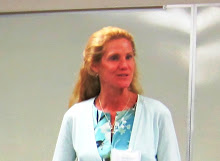Settlement Act: If Only The Towns Knew In 1983 What They Know Now[Published on 10/26/2003]
By Wesley J. Johnson, Sr., Robert Congdon and Nicholas Mullane
When President Reagan signed the Mashantucket Pequot Settlement Act on Oct. 18, 1983, little notice was taken of it in the three towns of Ledyard, North Stonington and Preston since most of the work involving the land issue had been done in Washington, D.C.
This act provided recognition of the Mashantucket Pequots as a federally-recognized tribe, gave them an 800-acres reservation within the boundaries of Ledyard, and $900,000 for the purchase of land within the reservation boundaries and for economic development.
Little did the residents of these three towns realize the impact this legislation would have on their lives in the coming years.
Initially, no impact was felt; then came the announcement of the construction of a 1,200-seat bingo hall on the reservation. The bingo hall gave the towns our first glimpse of the potential impacts of Native American gaming on our communities. The passage of the Indian Gaming Regulatory Act led to a lawsuit by the tribe against Connecticut, claiming charities' ability to conduct “Las Vegas Nights” provided the tribe the right to conduct Class III gaming.
The vast wealth generated by the casino provided the tribe the financial resources to purchase land outside the settlement area. When, in 1993, the tribe submitted an application for annexation of land outside the settlement area, it made residents angry in all three towns and continues to flavor their feelings toward the tribe to this day. The towns' opposition to the annexation of land is warranted for several reasons: it erodes the towns' tax base; it removes all local land use controls, such as planning and zoning; and it provides the tribe many sovereign rights, at the expense of civil rights and protects the tribe from litigation in Connecticut courts.
The development of the casino created many impacts for the surrounding towns without the benefit of local tax revenue to mitigate these impacts. While Ledyard, North Stonington and Preston are considered the host communities for the casino, its impact reaches across all of Southeastern Connecticut. Fire, police and ambulance services in the host towns have been severely impacted. Emergency calls have increased dramatically, causing both personnel and financial burdens. And other towns face casino-related burdens as well. For example, the Norwich school system has the burden of dealing with more than 30 languages within its system, mostly children of casino workers who have moved in from elsewhere. Housing throughout the region has been impacted. Currently, there is an identified shortage of more than 5,000 units of affordable housing.
Sovereignty has brought litigation. The tribe has tried to extend its sovereignty as a tax shelter to the vendors who have contracts to supply equipment to the tribe, feeling that tribal sovereignty extends to their companies since their equipment is located within the reservation boundaries. One case has already been settled by Ledyard.
Additionally, a recent court case involves a tribal member seeking a refund of her state income taxes paid while living in Ledyard, outside the reservation. The tribal member is claiming the area should be designated as “Indian Country” and given the same sovereign rights as lands within the reservation. If areas outside the reservation are granted “Indian Country” status, it would be devastating to not only local communities, but also the entire state. State and local tax revenues would be impacted as well as all of the land use and environmental issues raised with our opposition to annexation.
Several years ago, the tribe sought to gain the exclusive franchise right to distribute water in our towns. We were successful in retaining our exclusive service area through a public process, the Water Utility Coordinating Committee (WUCC). The tribe recently tried to overturn the WUCC determination through a back-door deal with the Department of Public Health. The actions of the tribe and Department of Public Health have forced the towns to defend our sovereign rights once again.
Probably one of the greatest challenges facing the towns and the tribe is to develop a working government-to-government relationship when the foundation is in question. Bret Fromson, author of “Hitting the Jackpot,” said in a recent interview, “The Pequots are essentially living a lie, and that is one of the fundamental problems facing these people.” “How do you become a tribe, when you are not a tribe . . .”
Improving our relationship with the tribe will be difficult until such time as the federal government has the courage to address U.S. Indian policy.
If we only knew then, what we know now.
Wesley J. Johnson, Sr., Robert Congdon and Nicholas Mullane are first selectmen of Ledyard, Preston and North Stonington respectively.
==============================
SOME OTHER PLACES WHERE INDIAN TRIBES AND LOCAL COMMUNITIES HAVE TROUBLE
The problems in Connecticut have gotten so bad that the state's attorney general and both of its U.S. senators, and congressmen from affected areas, have taken action (see above). But Connecticut is not the only place where there's trouble.
-----------------------------------
On February 17, 2005 Florida Governor Jeb Bush sent a two-page letter on official stationery to the Christian Coalition of South Florida expressing his opposition to the proliferation and expansion of tribal gambling casinos. Governor Bush says, in effect, that the problem was caused by Indian casinos already established before he became governor, and that there is little he can do to solve the problem, although he constantly opposes the casinos in the Legislature. Bush notes that the casinos are cannibalizing other businesses in the community. This letter should serve as a warning to businesses and communities in Hawai’i that passing the Akaka bill sets in motion powerful econolic and political forces that can then spin out of control. Here is a photo of Governor Bush’s letter on official stationery.
http://www.angelfire.com/hi5/bigfiles/JebBushTribeCasinos021705.pdfFor More Information on the Impact of Tribal Recognition On Local Businessess and Neighborhoods
http://www.angelfire.com/hi2/hawaiiansovereignty/tribeimpactbizandcommunity.htmlCasinos are Bad for Massachusetts, Bad for Monson


.jpg)

